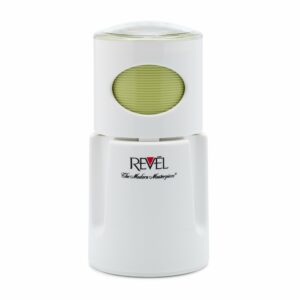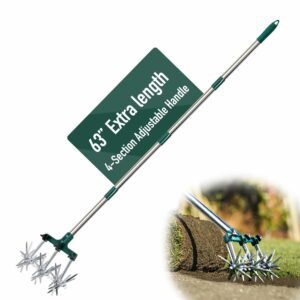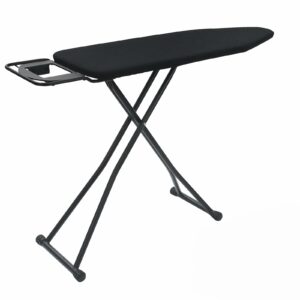Diesel Emissions Reclaims: What You Need to Know and How to Claim
If you’ve owned or leased a diesel vehicle in the UK within the last few years, you might be entitled to compensation. Diesel emissions reclaims have gained significant attention following revelations that several major car manufacturers misled regulators and the public about the environmental performance of their diesel engines.
This guide explores what diesel emissions reclaims are, who is eligible, how to claim, and what your rights are under UK law. Whether you’ve been contacted about a claim or are only just hearing about it, it’s worth understanding whether you’re due money back.
What Are Diesel Emissions Reclaims?
Diesel emissions reclaims are legal actions brought against vehicle manufacturers who allegedly fitted “defeat devices” to certain diesel models. These devices were designed to cheat emissions tests by lowering nitrogen oxide (NOx) output during laboratory testing, while real-world emissions remained far higher.
As a result, millions of drivers unknowingly bought or leased vehicles that were:
-
More polluting than advertised
-
Less fuel-efficient in real-world conditions
-
Potentially devalued on the second-hand market
Consumers who feel misled are now taking legal action to seek compensation, often with the help of group litigation firms.
Which Manufacturers Are Involved?
While the original scandal, often called “Dieselgate”, began with Volkswagen in 2015, multiple car brands have since been accused of similar practices. The following manufacturers have been involved in UK group legal actions:
-
Volkswagen (VW, Audi, SEAT, Skoda)
-
Mercedes-Benz
-
BMW
-
Fiat Chrysler (now part of Stellantis)
-
Ford
-
Vauxhall
-
Nissan
-
Renault
-
Peugeot
-
Citroën
-
Land Rover
The specific models and years affected vary, and each case may be treated differently depending on the court proceedings.
Why Are Drivers Claiming Compensation?
The basis for diesel emissions reclaims is that drivers were misled about what they were purchasing. If a car was advertised as low-emission, eco-friendly, or compliant with legal standards when it wasn’t, that could constitute a breach of consumer protection laws.
Drivers are claiming for:
-
Loss of vehicle value: The market value of many diesel vehicles has dropped.
-
Increased running costs: Misrepresented fuel efficiency can lead to higher costs.
-
Misinformation: Buying a product under false claims about environmental impact.
-
Environmental concerns: Some drivers feel betrayed for unintentionally contributing to pollution.
While each claimant’s circumstances are different, the legal argument rests on the manufacturer’s conduct and the consumer’s right to accurate information.
Am I Eligible to Claim?
You may be eligible to join a diesel emissions claim if:
-
You owned or leased a qualifying diesel vehicle from one of the listed manufacturers
-
The vehicle was purchased, financed, or leased between 2008 and 2020 (date ranges vary)
-
The vehicle meets specific engine type and model requirements
-
You are a UK resident and bought the vehicle in the UK
Even if you no longer own the car, you might still be eligible if you have proof of ownership or lease during the relevant period.
Use tools like My Diesel Claim or Slater and Gordon to check eligibility by entering your vehicle registration number.
How Much Compensation Could You Receive?
The amount of compensation varies based on several factors, including:
-
The make and model of your vehicle
-
The duration of ownership or lease
-
The type of financing used
-
The final court decision or settlement terms
Estimates suggest successful claims could result in £1,000 to £5,000 per vehicle, though this is not guaranteed. The process may take months or years, and the final outcome will depend on the legal proceedings.
How Do Group Claims Work?
Most diesel emissions reclaims in the UK are being pursued as group litigation orders (GLOs). These are similar to class actions, where multiple claimants are grouped into a single legal action against a defendant (the car manufacturer).
Key points include:
-
You don’t have to attend court individually
-
A law firm will represent all claimants
-
You may be able to join on a no win, no fee basis
-
Legal costs are typically deducted from any awarded compensation
Once you join a group claim, your case becomes part of a larger legal challenge. You’ll be kept informed by the firm representing you and may need to provide documentation like V5C forms, finance agreements, or service records.
Can I Claim on Behalf of a Business?
Yes. Businesses that purchased or leased affected diesel vehicles may also be eligible for compensation. This includes:
-
Small and medium enterprises (SMEs)
-
Fleet operators
-
Taxi or delivery services
-
Limited companies or partnerships
Business claims follow the same legal structure, though additional documentation may be required.
Is There a Deadline to Join a Claim?
Yes. Diesel emissions claims are subject to limitation periods, meaning there is a deadline by which you must act. These deadlines vary based on:
-
When the claim was first made public
-
The date of your vehicle purchase or lease
-
When the group litigation was officially launched
For example, claims against VW in the UK had to be joined before the case advanced in High Court. Missing the deadline may mean you lose your chance to join that particular group action, but others may still be open.
Always check current deadlines with the relevant law firm or legal platform as they vary case by case.
Is There a Risk to Joining a Claim?
Most law firms offering diesel emissions claims do so on a no win, no fee basis. This means:
-
You pay nothing upfront
-
You only pay if the claim succeeds
-
The fee is taken as a percentage of your compensation (usually between 25% and 40%)
While this reduces personal financial risk, it’s important to read the terms carefully and understand what you may owe if you withdraw or if the case settles early.
Can I Claim Directly From the Manufacturer?
Some manufacturers may offer out-of-court settlements to avoid legal battles, but most claims must go through legal channels for now. There are no public compensation schemes currently operated directly by the manufacturers involved in UK claims.
You should not pay anyone directly to join a diesel emissions claim unless they are a regulated law firm or solicitor.
How Long Will the Process Take?
Legal proceedings involving multiple manufacturers, thousands of claimants, and complex technical evidence can take several years. For example, the original VW Dieselgate case began in 2015, but UK compensation settlements didn’t begin until 2022.
Delays are common due to appeals, technical assessments, and negotiations. However, once a case reaches court and is resolved, compensation may be paid within months.
Conclusion
The diesel emissions scandal affected millions of drivers in the UK who were sold vehicles under false claims. If you owned or leased a diesel vehicle between 2008 and 2020, especially from brands like Volkswagen, Mercedes, or BMW, you may be eligible for compensation through a diesel emissions reclaim.
Joining a group action is usually risk-free, requires minimal effort, and could result in thousands of pounds in damages. With many claims still open, now is the time to check if you qualify and begin the process.
Visit a trusted platform, gather your documents, and make an informed decision about whether to pursue a claim. The process may take time, but justice for diesel drivers is well underway.
 Swan SD6060N 1.5 litre Stainless Steel Fryer with Viewing Window, Non-Stick Coating for Easy Cleaning and Adjustable Thermostat with Indicator Light, Detachable Basket Handle, 900W, Silver
Swan SD6060N 1.5 litre Stainless Steel Fryer with Viewing Window, Non-Stick Coating for Easy Cleaning and Adjustable Thermostat with Indicator Light, Detachable Basket Handle, 900W, Silver  Sage - The Custom Loaf - Bread Maker, Brushed Stainless Steel
Sage - The Custom Loaf - Bread Maker, Brushed Stainless Steel  Russell Hobbs Kettle, retro red, 1.7 l, 2400 W, quick cooking function, water temperature display in retro design, filling level marking, optimised pouring spout, vintage 21670-70
Russell Hobbs Kettle, retro red, 1.7 l, 2400 W, quick cooking function, water temperature display in retro design, filling level marking, optimised pouring spout, vintage 21670-70  Sensio Home Personal Blender Smoothie Maker - BPA Free 1L Jar & 600ml Portable Sports Bottle, Electric Blender for Fruit, Vegetables, Protein Shakes, Crush Ice & Frozen Fruit, 2 Speed + Pulse 350W
Sensio Home Personal Blender Smoothie Maker - BPA Free 1L Jar & 600ml Portable Sports Bottle, Electric Blender for Fruit, Vegetables, Protein Shakes, Crush Ice & Frozen Fruit, 2 Speed + Pulse 350W  Russell Hobbs Honeycomb Electric 1.7L Cordless Kettle (Fast Boil 3KW, Grey premium plastic, matt & high gloss finish, Removable washable anti-scale filter, Push button lid, Perfect pour spout) 26053
Russell Hobbs Honeycomb Electric 1.7L Cordless Kettle (Fast Boil 3KW, Grey premium plastic, matt & high gloss finish, Removable washable anti-scale filter, Push button lid, Perfect pour spout) 26053  Rolling Kitchen Island Cart with Solid Wood Countertop Spice Rack and Wheels Portable Kitchen Cart (1 Piece)
Rolling Kitchen Island Cart with Solid Wood Countertop Spice Rack and Wheels Portable Kitchen Cart (1 Piece)  150FT Expandable Flexible Garden Hose with 7 Setting Professional Water Spray Nozzle
150FT Expandable Flexible Garden Hose with 7 Setting Professional Water Spray Nozzle  Swan SK14610FUS Nordic Cordless Jug Kettle with Fast Boil Technology, Overheat Protection, Soft Touch Handle, 1.7L, 3KW, Fuchsia Rose, Fusia
Swan SK14610FUS Nordic Cordless Jug Kettle with Fast Boil Technology, Overheat Protection, Soft Touch Handle, 1.7L, 3KW, Fuchsia Rose, Fusia  Salter EK3131 Espressimo Coffee Machine – 4-Shot Espresso Maker, Milk Frothing Wand, Includes 240 ml Glass Carafe, Barista Style Latte And Cappuccino, 5-Bar Pressure, Stainless Steel Filter, 870W
Salter EK3131 Espressimo Coffee Machine – 4-Shot Espresso Maker, Milk Frothing Wand, Includes 240 ml Glass Carafe, Barista Style Latte And Cappuccino, 5-Bar Pressure, Stainless Steel Filter, 870W  Revel CCM104 Wet and Dry Grinder, Plastic, White/Green
Revel CCM104 Wet and Dry Grinder, Plastic, White/Green  Rotary Cultivator Set, 25"-63" Adjustable Gardening Rotary Tiller and Hand-Held Garden Cultivator Tool with Steel Detachable Tines, Reseeding Grass or Soil Mixing
Rotary Cultivator Set, 25"-63" Adjustable Gardening Rotary Tiller and Hand-Held Garden Cultivator Tool with Steel Detachable Tines, Reseeding Grass or Soil Mixing  Rainberg 122 x 38cm Folding Ironing Board with Jumbo Iron Rest, Adjustable Height Up To 93cm, Foldable & Collapsible Ironing Table (Black)
Rainberg 122 x 38cm Folding Ironing Board with Jumbo Iron Rest, Adjustable Height Up To 93cm, Foldable & Collapsible Ironing Table (Black)